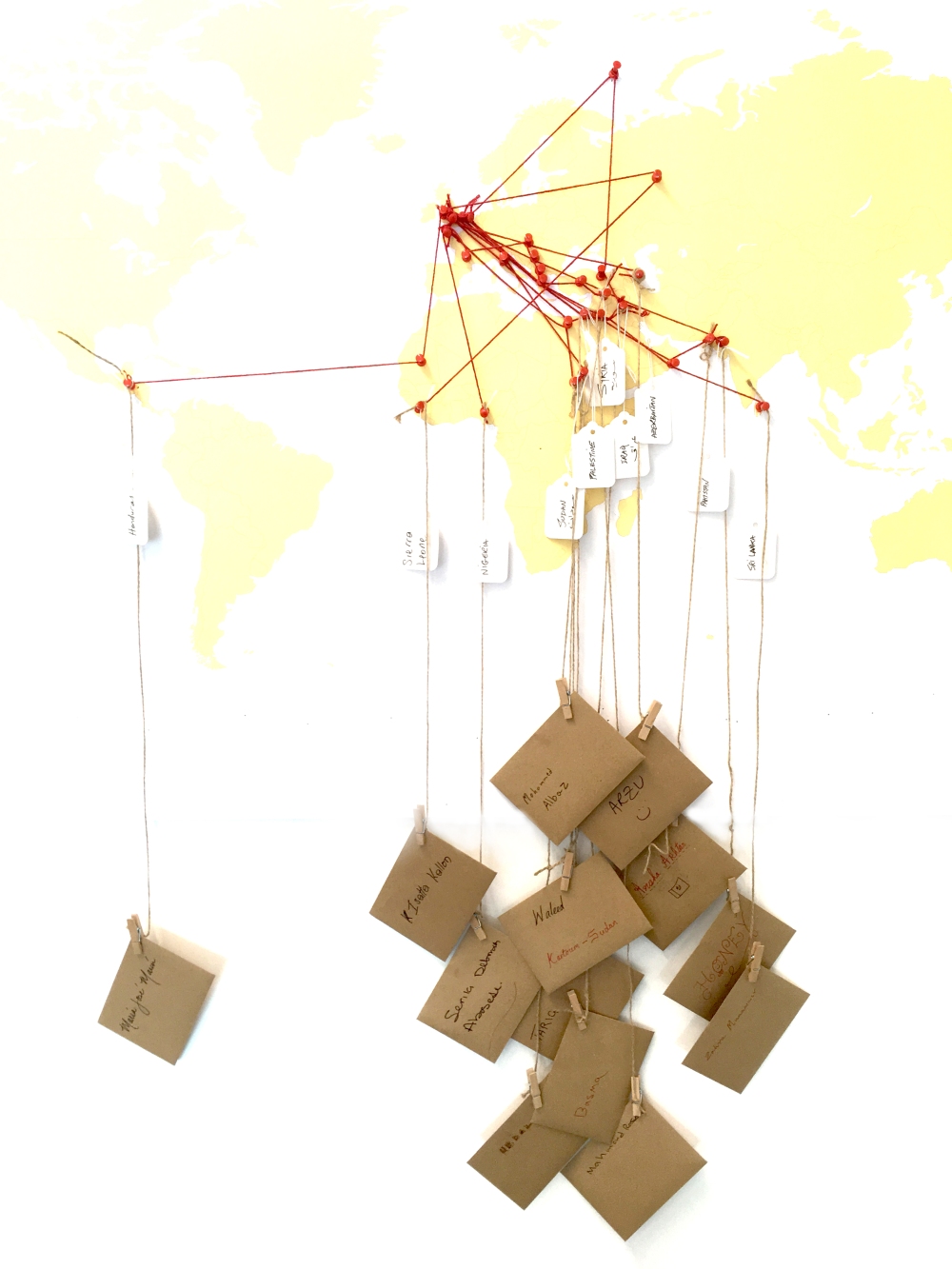
Creative Recovery: Mapping Refugees’ Memories of Home as Heritage is one of just 31 projects awarded a grant from the European Cultural Foundation‘s Courageous Citizens 2018 programme, out of more than 500 applications from across the world. The project is led by Associate Professor (Spatial Practice) and the founder of the Displacement Studies Research Network, Dr Sana Murrani from the University of Plymouth in partnership with the British Red Cross, Plymouth branch. Part of the project was funded by the University of Plymouth’s Sustainable Earth Institute under the Creative Associate scheme 2019. Photojournalist Carey Marks of Scarlet Design was supported by this fund.
Refugees face daunting personal and collective challenges when they are forced to leave their homes. Responsive and adaptive initiatives, and related research and development, have tended to focus on surviving the immediate crises of transit. Yet their struggles have a much longer, and equally courageous but neglected dimension, if they are to build a new many-sided life, maintaining their cultural identities, yet becoming full citizens of their destination communities.
How can refugees make new homes which draw upon the culture of the material, spatial and social environments from which they have been displaced: recovering and re-inventing their heritage in a very different context?
The proposed project will pioneer creative ways of addressing this question by:
- enabling refugees to gain confidence and develop skills, especially through digital mapping;
- recovering, representing and expressing publically, locally, and domestically the varieties of home-making memories and heritage which are most meaningful to them;
- encouraging refugees to consider how their heritage can contribute to the vitality of the wider neighbourhood;
- fostering mutual aid and interests between different refugee groups, and with local community networks;
- demonstrating to the wider community how refugees can enrich the diversity of a shared, often informal, cultural life, through an exhibition, related publications, and online and media coverage.
The pilot approach to mapping refugees’ memories of home-making will be highly distinctive and innovative. Through their experience of diaspora, refugees often have an exceptional awareness of transnational connections; related skills in digital social media; and a complex and instantaneous (responding to continuous disruption) understanding of what it would take to make themselves truly at home again. Refugees will be introduced to the potential of experimental, digital mapping techniques, which will provide a particularly appropriate and stimulating focus for capturing their memories of home, in addition to 3D model-making, and audio-visual documentation. They will be enabled to co-produce vibrant and revelatory representations of their original home environments, and to explore how valued aspects of this material, spatial and social heritage can be revitalised as they integrate within new communities.